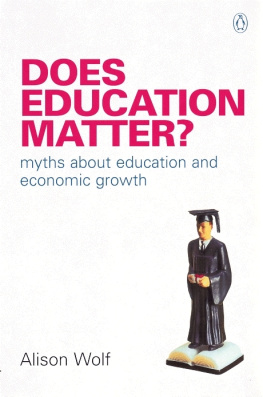coll. - Apprenticeship and vocational education and training in Israel
Here you can read online coll. - Apprenticeship and vocational education and training in Israel full text of the book (entire story) in english for free. Download pdf and epub, get meaning, cover and reviews about this ebook. year: 2018, publisher: OECD, genre: Politics. Description of the work, (preface) as well as reviews are available. Best literature library LitArk.com created for fans of good reading and offers a wide selection of genres:
Romance novel
Science fiction
Adventure
Detective
Science
History
Home and family
Prose
Art
Politics
Computer
Non-fiction
Religion
Business
Children
Humor
Choose a favorite category and find really read worthwhile books. Enjoy immersion in the world of imagination, feel the emotions of the characters or learn something new for yourself, make an fascinating discovery.
Apprenticeship and vocational education and training in Israel: summary, description and annotation
We offer to read an annotation, description, summary or preface (depends on what the author of the book "Apprenticeship and vocational education and training in Israel" wrote himself). If you haven't found the necessary information about the book — write in the comments, we will try to find it.
Apprenticeship and vocational education and training in Israel — read online for free the complete book (whole text) full work
Below is the text of the book, divided by pages. System saving the place of the last page read, allows you to conveniently read the book "Apprenticeship and vocational education and training in Israel" online for free, without having to search again every time where you left off. Put a bookmark, and you can go to the page where you finished reading at any time.
Font size:
Interval:
Bookmark:

Kuczera M., T. Bastiani and S. Field (2018), Apprenticeship and Vocational Education and Training in Israel , OECD Reviews of Vocational Education and Training, OECD Publishing, Paris.
http://dx.doi.org/10.1787/9789264302051-en
Israel has experienced strong economic growth over the last decade, and unemployment is now below 5%. Skills shortages are emerging in several technical areas. If Israel is to meet the demand for skills and to support its economic growth it can either increase external migration or/and use its education and training system more effectively. At the same time, inequity and disadvantage in some population groups are raising the profile of other demands for vocational training as a vehicle for social inclusion. Collectively, these factors are driving policy interest in developing a vocational education and training (VET) system which is currently both fragmented and of modest scale when compared with the VET systems of other OECD countries.
This OECD report Apprenticeship and Vocational Education and Training in Israel compares the VET policy in Israeli with practice in other countries, and on this basis draws policy conclusions. Among others, the report argues for the expansion and integration of apprenticeship programmes into the mainstream upper-secondary system; development of systematic work-based learning in selected school-based VET programmes; support of employers with provision of high-quality work-based learning; setting up a national strategic body to plan and guide policy development in VET; and, focus on literacy and numeracy in VET programmes for young people and for adults.
This report was drafted by Magorzata Kuczera, Tanja Bastiani and Simon Field. Elisa Larrakoetxea and Jennifer Cannon provided valuable administrative support. The OECD is very grateful to colleagues in Israel, in the Ministry of Labour and Social Affairs and many other people we met during our visits for their many very constructive contributions to the review. In particular we are grateful to Shmuel Pur and Lior Zysev-Yogev from the Ministry of Labour and Social Affairs; Yaakov Sheinbaum from the Ministry of Education; Sophie Artsev and Haim Portnoy from the Central Bureau of Statistics; Judith King, Nir Levy and Tirza Willner from Myers-JDC-Brookdale. Within the OECD the report benefited from many helpful comments and advice from Francois Keslair, Anthony Mann, Marco Paccagnella and William Thorn in the Directorate for Education and Skills and Claude Giorno and Gabriel Machlica from the Economics Department.
In coming years Israel will need to invest substantially in skills, given a growing economy, a wave of retirements among technically trained immigrants from the former Soviet Union, low labour force participation in some sub-populations, and continuing problems with weak labour productivity. Collectively, these factors undermine the Israeli economy and social cohesion.
By international standards Israel has many jobs requiring high-level skills and few elementary low-skilled occupations. While this shows that the Israeli economy is particularly dependent on the supply of highly skilled labour, labour shortages are observed in many sectors and occupations. If Israel is to meet the demand for skills and to support its economic growth it can either increase external migration or/and use its education and training system more effectively to respond to labour market needs. Vocational education and training (VET) in Israel can effectively support the Israeli economy by providing the skills in demand on the labour market as well as improving the life chances of individuals.
The current school-based VET system serves some students well by providing them with strong academic skills and preparing them well for entry to university. But others are left behind. These are students who do not pass matriculation exams (Bagrut), who drop out during the programme, and who do not continue to higher levels of education for other reasons. These students face uncertain labour market benefits. Reforms are needed to better integrate apprenticeship and work-based learning into upper-secondary VET. They should be part of the mainstream provision, rather than an option for potential drop-outs. This would involve an expansion of apprenticeship programmes, and development of systematic work-based learning placements in selected school-based VET programmes. The requirement of a special exemption to enter an apprenticeship should be dropped.
For adults, diverse work-based learning measures, including apprenticeship may help to alleviate skills shortages and integrate disadvantaged social groups into the labour market. To expand apprenticeship programmes for adults, Israel should devise incentive and support measures based on analysis of relevant costs and benefits for different target groups e.g. by gender, minority status and age.
The support of employers is necessary to reform vocational programmes, including expansion of work-based learning in VET. Experience from other countries shows that programmes with longer work placements, such as apprenticeship, are often used by employers as a recruitment tool. Currently many employers in Israel are not able to realise long-term benefits associated with recruitment of the most able apprentices because many young apprentices enter the military service after completing apprenticeship programmes. When apprentices are rapidly trained and placed in skilled productive work apprenticeships can also yield large short-term benefits to employers. Apprenticeships leading to net benefits in the short term can therefore be particularly attractive to employers in Israel.
Font size:
Interval:
Bookmark:
Similar books «Apprenticeship and vocational education and training in Israel»
Look at similar books to Apprenticeship and vocational education and training in Israel. We have selected literature similar in name and meaning in the hope of providing readers with more options to find new, interesting, not yet read works.
Discussion, reviews of the book Apprenticeship and vocational education and training in Israel and just readers' own opinions. Leave your comments, write what you think about the work, its meaning or the main characters. Specify what exactly you liked and what you didn't like, and why you think so.

















